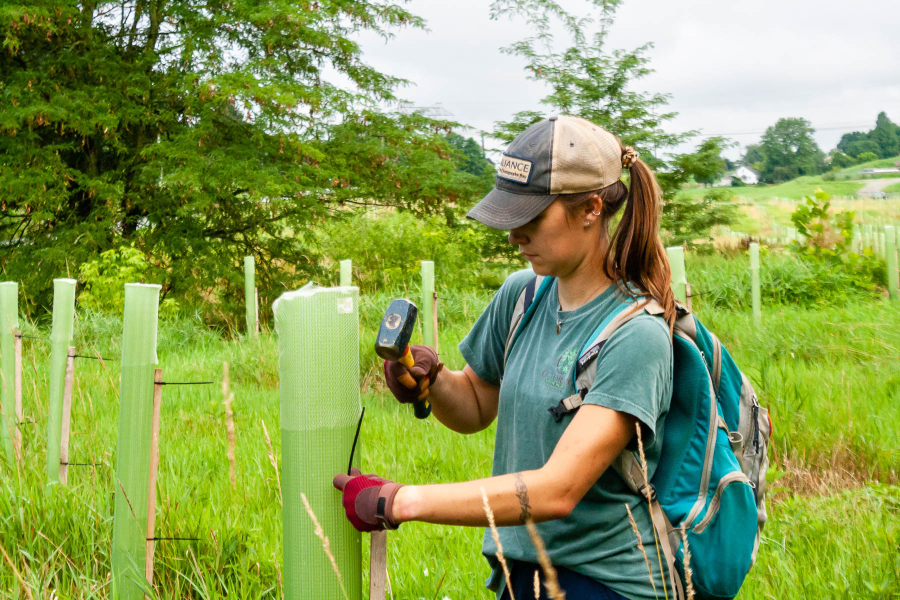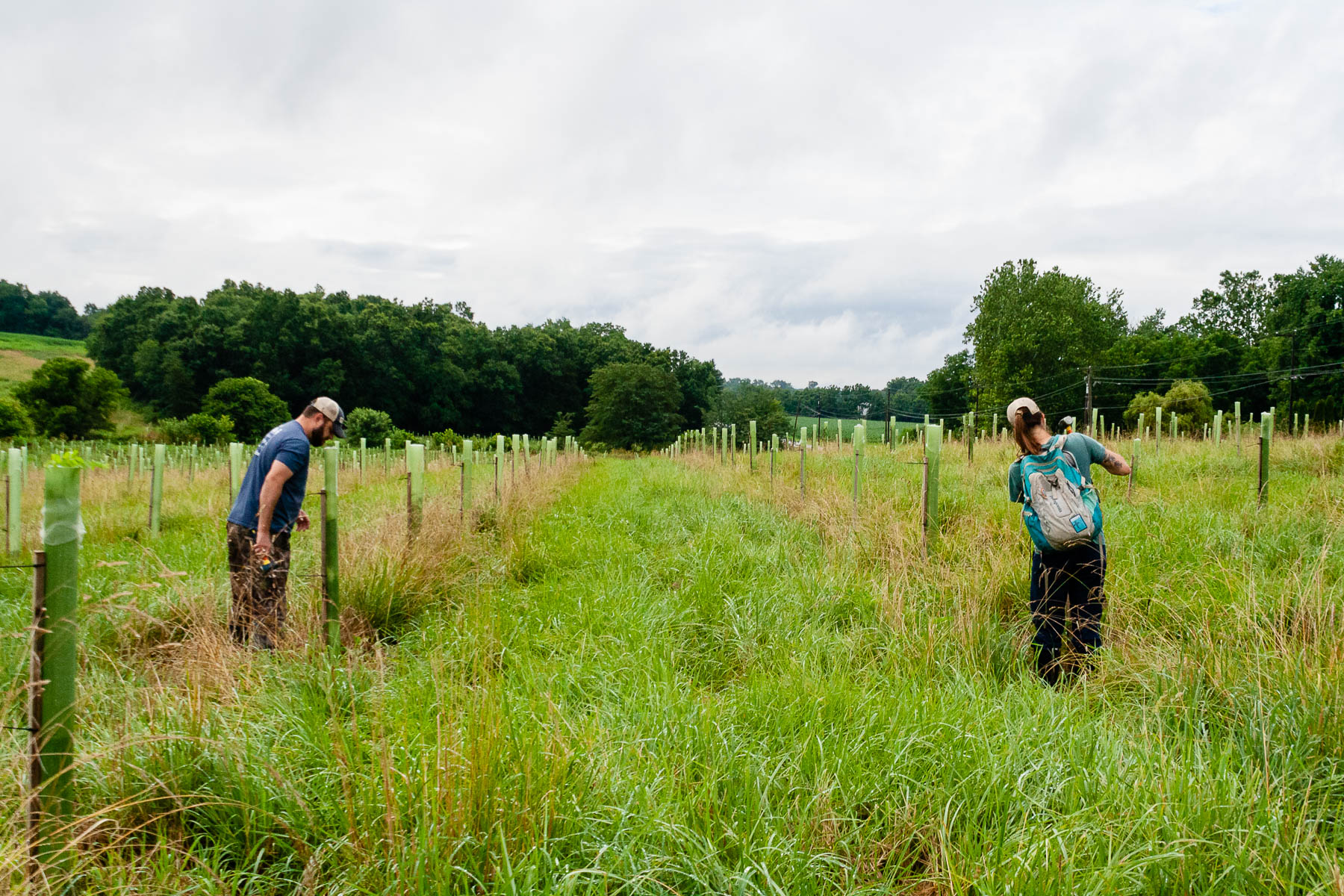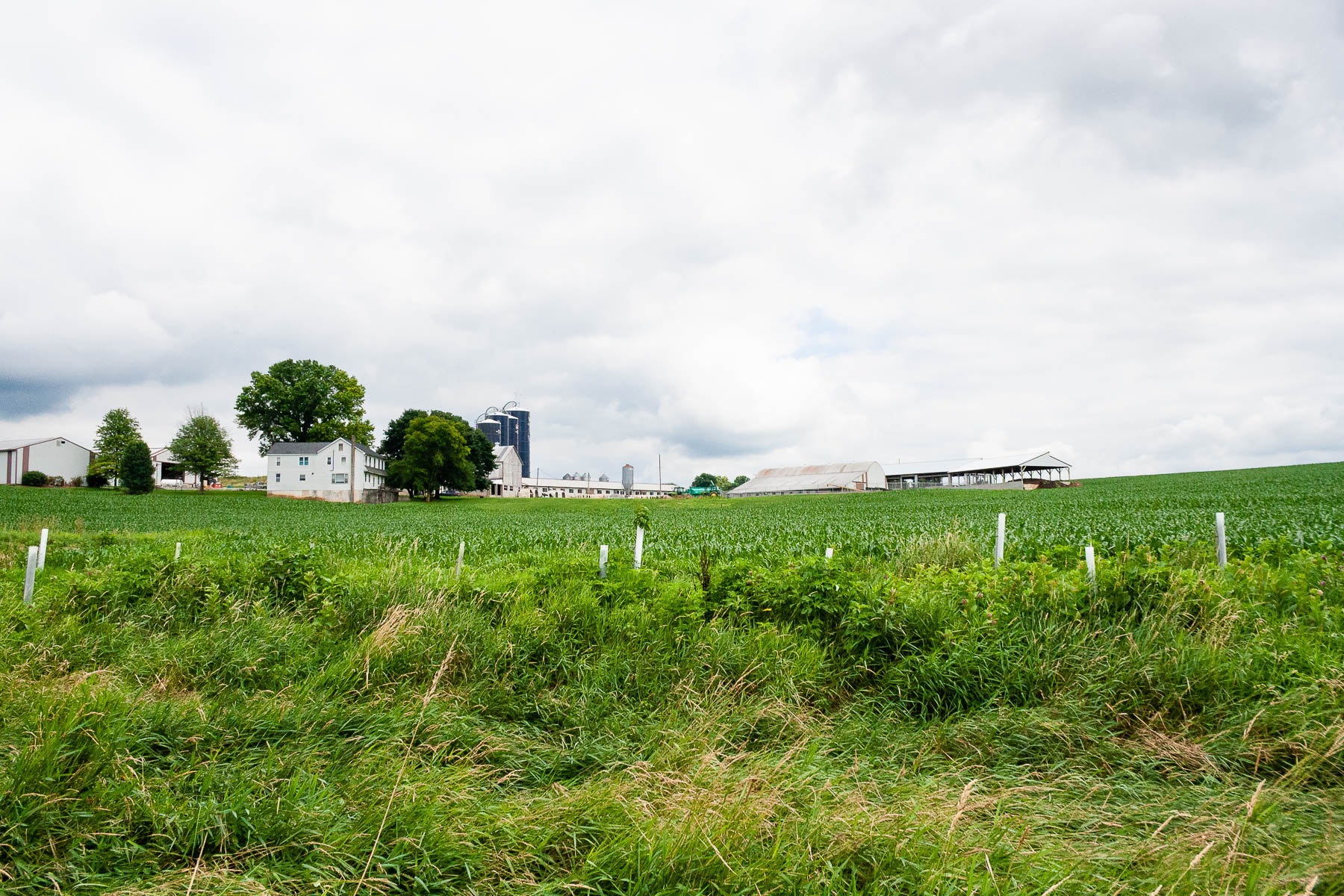Nonprofit thinks big to tackle agricultural pollution along the Susquehanna River

With pollution from agriculture as one of the main causes of the Chesapeake Bay's poor health, farmers in Pennsylvania often find themselves taking the blame. Lancaster County alone is home to over 5,000 farms and is the number one producer of poultry, eggs, milk and swine in the Commonwealth.
But to villainize these communities would be short sighted. In almost all instances, Pennsylvania farmers care just as much about the environment as everyone else.
Brittany Smith, Pennsylvania agricultural projects manager for the Alliance for the Chesapeake Bay, said farmers are normally already implementing or want to add best management practices (BMPs), which are conservation practices to reduce or prevent pollution from their farms.
“Farmers see the value in conservation and restoration,” Smith said. “They're hunters, they’re anglers. They want to protect the resources that feed their community.
Funding for the installation of BMPs is available through federal programs, but one problem, Smith said, is that farmers often must pay up front and are reimbursed later which is hard or impossible for farmers with razor thin margins to do. Having groups like the Alliance find additional funding for BMPs is critical to get them installed on farms, though it is not an all-encompassing solution.
“With the rising costs of inflation and shortage of technical capacity, the government programs only get so far and only help so many people,” Smith said. “We are trying to identify the gaps there and provide funding assistance across many platforms.”
To tackle this problem head on, the Alliance has pioneered a corporate partnership model that brings big businesses into the fold. Working with the Alliance, major providers of dairy products in Pennsylvania are offering funding of their own so that their supply chain can offer greater improvements for clean water.
Growing a corporate partnership

The first corporate collaboration the Alliance started with Turkey Hill Dairy and the Maryland and Virginia Milk Producers Cooperative Association. Turkey Hill Dairy receives its milk from about 160 farms all within a 50-mile radius of their manufacturing facility in Conestoga, Pennsylvania. According to the Turkey Hill Clean Water Partnership, all producers receive a conservation plan and must reach environmental compliance before Turkey Hill will buy the milk.
The Alliance’s most recent partnership is Sustainable Dairy PA, which consists of the Hershey Company and Land O’ Lakes Dairy Co-op. The partnership, which prioritizes farmers in south-central Pennsylvania, provides funding to farmers to install BMPs that reduce water pollution and sequester greenhouse gases.
Over 300 Land O’ Lakes farmers supply milk to the Hershey Company and currently the program is supporting dozens of projects.
Smith said the Alliance aims to cover a significant percentage of out-of-pocket costs for farmers to install BMPs. So far, for every one dollar a corporation supplies, the Alliance has matched it with about four dollars they have leveraged through grants.
BMPs include planting riparian forest buffers, putting in streamside fencing and stream crossings to keep cattle out of waterways to improve water quality and installing animal waste storage systems to reduce greenhouse gas emissions.
“Our efforts are extremely really farmer focused,” Smith said. “We help to navigate their concerns by bringing both financial and technical resources to the table.”
In 2021, a $500,000 grant from Chesapeake Bay Program’s Small Watershed Grants was awarded to the Alliance to leverage corporate matches. The grant was administered by National Fish and Wildlife Foundation (NFWF) and Smith said this funding has been crucial to jumpstart the Sustainable Dairy PA partnership. Hershey also provided $300,000 in funding for the pilot program.
“[NFWF] believes in the corporate partnership model,” Smith said. “Businesses have the greatest impact already on the ground. It's much easier to drive change from a large scale instead of a shotgun approach. By jointly doing outreach with a trusted corporate partner, farmers are much more likely to accept assistance.”
Checking in on farmers

On July 7, 2022, staff from the Alliance visited three farms in Lancaster County that had forest buffers planted as a result of their corporate partnerships. The crew straightened the tubes protecting the young trees, monitored for survival, removed competing invasives and fixed stakes that had become loose or broken.
Jim Kauffman, Pennsylvania forests project coordinator for the Alliance said making sure the trees are monitored for the first 3-5 years while they become established is key to making sure buffers are successful.
“Tree maintenance isn’t just important, it's critical,” Kauffman said. “90% of trees planted would die without maintenance.”
The Alliance visited the farm of Brian Eckman where they had planted trees on his property to create a buffer between poultry houses and a stream. A litter shed to contain composted manure is also going to be installed soon through some leveraged funding. Eckman raises pigs, dairy cows and broilers and said the BMPs have made a world of a difference on his farm.
“If I'm not using the land for production and agriculture it might as well be used for trees,” Eckman said. “I think it’s a great thing to do … we’ve had less erosion, we’re getting better water quality, better stormwater management, really the whole nine yards.”
Brian Mull, a Land O’ Lakes dairy farmer in Quarryville, Pennsylvania, has been implementing BMPs for years and said the partnership will help pay for projects on his farm.
Mull said he had initially installed BMPs through funding from the U.S. Department of Agriculture’s Natural Resources Conservation Service, but now based on increased demand his farm does not often rank high enough to get new projects approved. However, the pilot funding from Hershey will help install a terrace and grassed waterway on his farm.
“Any BMPs we do… it’s never been cheap, but it’s always getting more expensive,” Mull said.
Smith said she hopes this partnership model will only gain more popularity and said the next step is to continue to acquire funding to assist more farmers and grow momentum with other companies.
“We're trying to assist corporations to do the right thing,” Smith said. “Incentivize their farmers and prioritize conservation from the beginning.”

Comments
There are no comments.
Thank you!
Your comment has been received. Before it can be published, the comment will be reviewed by our team to ensure it adheres with our rules of engagement.
Back to recent stories